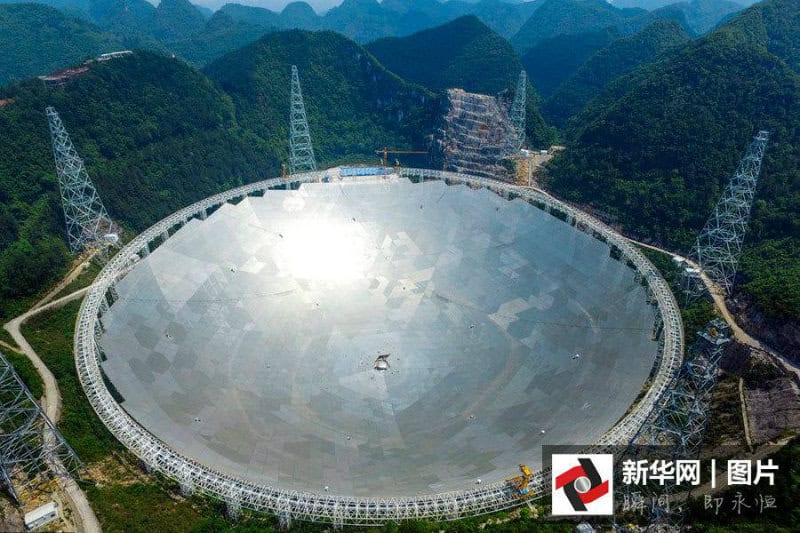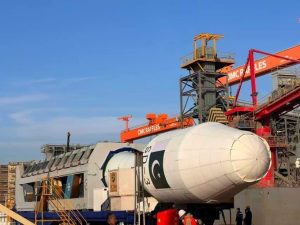GUIYANG, Guizhou (Web Desk) – China has almost finished building the world’s largest radio telescope (FAST) and will soon start the testing it in a bid to boost the global hunt for extraterrestrial life.
FAST – Five-hundred-metre Aperture Spherical Radio Telescope – will be hooked up to one of the world’s fastest computers for astronomical calculations, Sky Eye 1, to search for alien life and investigate dark matter, according to China’s state broadcaster CCTV.
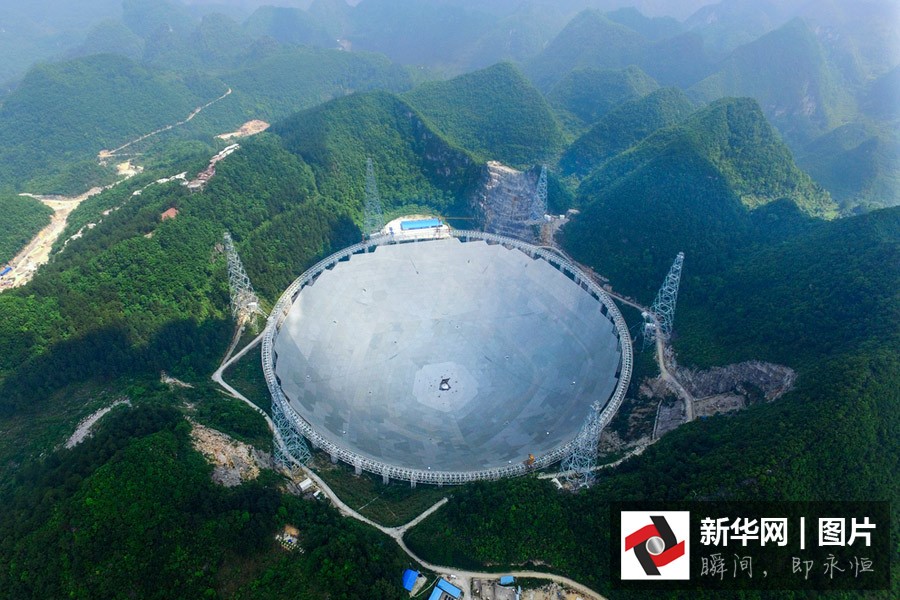
The 1.2bn yuan (£127m) telescope, with a dish larger than 30 football fields, began construction in March 2011 in a natural, bowl-shaped valley in the southern part of China’s Guizhou Province. Construction is expected to be completed in September.

With its super brain, the high-performance computer Sky Eye 1, capable of a quadrillion computing operations per second (a quadrillion is a thousand raised to the power of five), FAST will be able to “see” a radio signal coming as far as tens of billions of light years away. This will extend China’s space tracking scope from the moon’s orbit to the outside edge of the solar system.
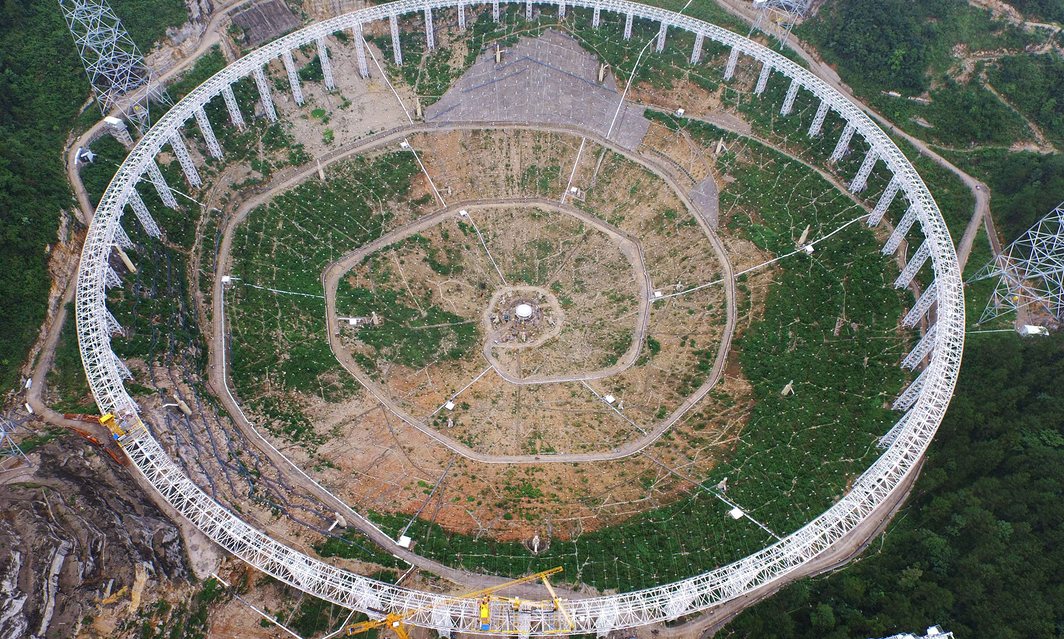
However, China needs to relocate more than 9,000 people before the unveiling of the world’s largest radio telescope later this year, the Xinhua news agency announced on Tuesday.

Each will receive 12,000 yuan (£1,275) in compensation from the government’s eco-migration bureau, Xinhua added.
Li Yuecheng, a senior Communist party official in Guizhou, said that relocations would help “create a sound electromagnetic wave environment” within a 5km radius of the project.
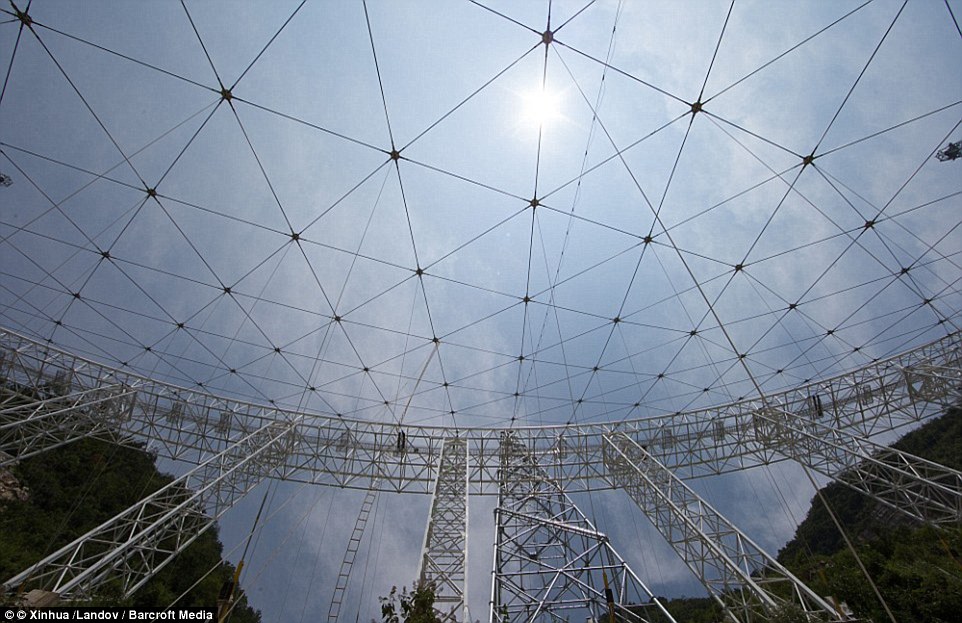
Beijing sees its 500 metre-diameter telescope, which will dwarf the 300 metre-diameter Arecibo Observatory in Puerto Rico, as the latest symbol of its growing technological prowess.
One of the scientists behind the project recently claimed that if the telescope was filled with wine, each of the world’s 7 billion inhabitants could fill about five bottles from it. But the telescope is intended as a pioneering scientific endeavor, not a super-sized decanter.

Chinese officials say the telescope’s location in Qiannan, an isolated region deep in Guizhou’s spectacular Karst mountains, is the ideal place to detect possible extraterrestrial messages.
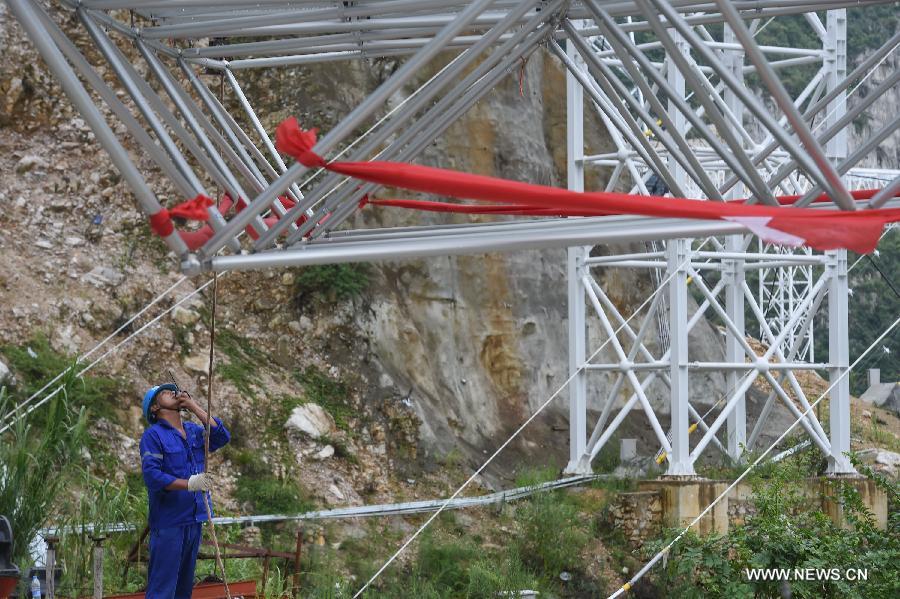
Li Di, a scientist from the Chinese Academy Of Sciences, said FAST would allow Beijing to “explore deeper into space and look at asteroids and even Mars”. He told China’s state broadcaster CCTV last year: “It will give China an opportunity to conduct frontier research.”

